
Like the program they helm, the NETS faculty's experience spans multiple disciplines and points of view. Acting as both dedicated researchers and teachers, they merge the theoretical with the practical, ultimately challenging their students to not only be brilliant thinkers, but original ones.
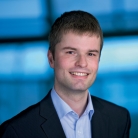
Andreas Haeberlen, Co-Director
Associate Professor of Computer and Information Science
Andreas is working on distributed systems, networking, and security. He is particularly interested in large-scale distributed systems that span multiple administrative domains, such as cloud computing platforms or the Internet's interdomain routing system.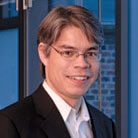
Zachary Ives
Professor of Computer and Information Science; Associate Dean of Master's and Professional Programs, School of Engineering and Applied Science
Zack's research focuses on information management in today's Web and wireless worlds. He works on next-generation techniques for searching the Web and databases, integrating data from sensors, processing "big data", and sharing data among groups that have different ways of modeling the world.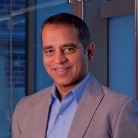
Sampath K. Kannan
Henry Salvatori Professor and Chair of Computer and Information Science
Sampath's research spans several subfields in algorithms. In his work on massive data set algorithms, Sampath explores what can be computed efficiently, and what is not computable.
Michael Kearns
Professor and National Center Chair, Computer and Information Science
Michael's primary research interests include machine learning, algorithmic game theory and computational finance. Prior to joining the Penn faculty, he spent a decade in the basic research at AT&T/Bell Laboratories and now works extensively with tech startups and in the quantitative finance industry.
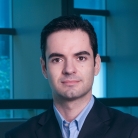
Victor Preciado
Raj and Neera Singh Assistant Professor of Electrical and Systems Engineering
Victor's research focuses on modeling, analysis and optimization of dynamical processes and strategic interactions in large-scale complex networks, with applications in social networks, multi-agent systems, electrical and biological networks.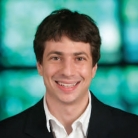
Aaron Roth, Co-Director
Class of 1940 Bicentennial Term Associate Professor of Computer and Information Science
Aaron studies algorithm design in settings in which either the data belongs to other self-interested parties, or the computation is to be performed by other self-interested parties. This requires studying the algorithmic foundations of data privacy and game theory.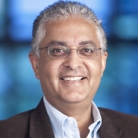
Rakesh Vohra
George A. Weiss and Lydia Bravo Weiss University Professor; Professor Electrical and Systems Engineering
Rakesh's research in mechanism design focuses on the best ways to allocate scarce resources when the information required to make the allocation is dispersed and privately held, an increasingly common condition in present-day environments.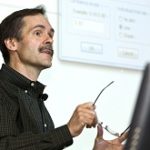
Francis X. Diebold
Paul F. and Warren S. Miller Professor of Economics; Professor of Statistics and Finance; Co-director, Wharton Financial Institutions Center
Francis’s research interests focus on descriptive and predictive modeling in time-series contexts, with emphasis on financial markets and the macroeconomy.
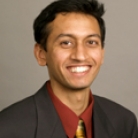
Kartik Hosanagar
Professor of Technology and Digital Business at The Wharton School
Kartik's research work focuses on the digital economy, in particular Internet media, Internet marketing and e-commerce.
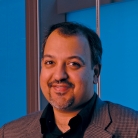
Sanjeev Khanna
Henry Salvatori Professor of Computer and Information Science
Sanjeev works in theoretical computer science, studying the amount of resources that are necessary and sufficient to perform a computational task. His specific interests are in fast computation of near-optimal solutions for NP-hard problems, a class which has eluded efficient exact algorithms.
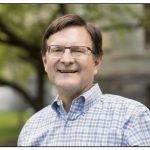
George Mailath
Walter H Annenberg Professor in Social Sciences; Professor of Economics
George's published research in microeconomics includes papers on pricing, noncooperative game theory, evolutionary game theory, repeated games, social norms, and the theory of reputations
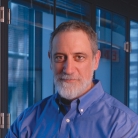
Daniel E. Koditschek
Director of PERCH; Alfred Fitler Moore Professor of Electrical and Systems Engineering; Professor of Computer and Information Science and Mechanical Engineering and Applied Mechanics
Research in Dan's group is focused on the application of dynamical systems theory to the design, construction and empirical testing of machines that juggle, run, climb, and in general, interact physically with their environment to perform useful work.
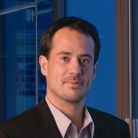
Alejandro Ribeiro
Associate Professor of Electrical and Systems Engineering
Alejandro believes that understanding networks, beyond wireless and communications, is one of the greatest intellectual challenges of the 21st century. Accordingly, his research is aimed at developing a theory to model and develop wireless networks.
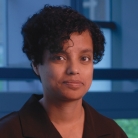
Saswati Sarkar
Professor of Electrical and Systems Engineering
Saswati's research focuses on enabling wireless communication among computing units that have limited access to communication resources such as bandwidth, memory and battery power.
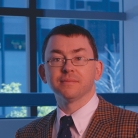
Jonathan M. Smith
Olga and Alberico Pompa Professor of Computer and Information Science
Jonathan's research interests center around computer networking and computer security.
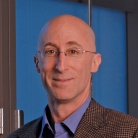
Lyle H. Ungar
Professor of Computer and Information Science
Lyle develops machine learning and text mining methods in order to solve problems in genomics, bioinformatics, and information extraction.
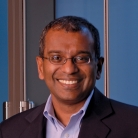
Santosh S. Venkatesh
Professor of Electrical and Systems Engineering
Santosh is interested in probabilistic methods applied to fundamental problems in information, communication, and security.
